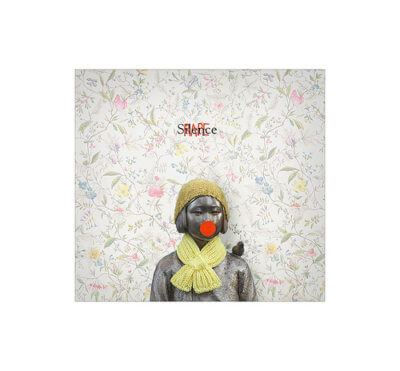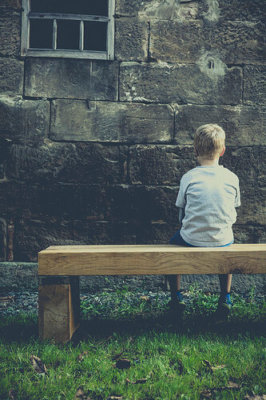What is Child Sexual Abuse? Why Your Definition Might Need Updating

By: Nizomi
by Andrea M. Darcy
Sexual abuse is tragically still all too common and underreported in the UK. The National Society for Prevention to Cruelty to Children (NSPCC) states that for each child identified as needing protection from an abuser, there are at least another eight who are being made victims.
Improved parameters over what is included as sexual abuse might mean these statistics are in reality even higher.
It also might mean that if you have spent your life convincing yourself that what happened to you as a child ‘wasn’t really sexual abuse’ you might have to rethink your experience, and the real implications it has had for you as an adult.
What is child sexual abuse? The evolving definition
Up until as recently as 2003, the charge of rape was so limited it only involved vaginal penetration of a female by a man. Although the law was stricter with cases involving those under 16 and especially under 13, many forms of assault which did not involve penetration were downgraded as ‘indecent assault’. This definition also overlooked child sexual abuse of boys, and abuse perpetrated by women or adolescents.
For too long child sexual abuse cases also focused only on the physical harm a victim suffered. But the most abusive part of child sexual abuse can be the mental, emotional, and psychological torture it involves, and the long-term suffering it causes.
Thankfully, newer legal definitions in the United Kingdom are far more stringent. It is now legally recognised that sexual abuse does not even have to involve physical contact. There are forms of child sexual abuse, now referred to as ‘non contact abuse’, that can still result in the same or similar long-term negative affects for a victim even without any physical touch involved. And sexual abuse against children can be perpetrated by anyone, including women, adolescents, and other children.
In summary, a child is now seen as sexually abused when they are forced or persuaded or even just asked to take part in sexual activities of any kind. And a child, seen by UK law as anyone under the age of 16, cannot consent to sexual activity. End of question.
(To read through the exact policy definitions put forth by each separate nation of the United Kingdom we recommend you visit the National Society for the Prevention of Cruelty to Children (NSPCC) page which goes through each one.)
‘Contact’ vs ‘Non Contact’ Sexual Abuse
The terms now used to encompass non physical forms of child sexual abuse are ‘contact’ and ‘non contact’.
Contact abuse involves physical touch. It includes
- intercourse of any kind with a minor, including vaginal, anal, or oral
- sexual assault by penetration of an object
- sexually touching any part of a child’s body whether it is through clothes or not, including rubbing and kissing
- making a child touch someone’s sexual parts or asking them to touch themselves in appropriately.
Non contact abuse doesn’t involve physical touch. It includes:
- sexual body parts ‘flashed’ or exposed to a child
- engaging children in looking at sexual images
- asking children to watch sexual activities including masturbation
- encouraging a child to hear sexual acts
- making a child remove their clothing
- using children in the production of sexual imagery
- encouraging children to behave in sexual ways
- grooming a child for abuse (including over the internet)
- meeting a child with the intent of abuse after grooming him or her
- directing sexual language towards a child
- not taking appropriate action to prevent a child from being exposed to sexual activity.
If I never even met the person, and it was all just communication, was it still abuse?

By: barnimages.com
Yes, it is abuse.
Again, sexual abuse is any and all inappropriate sexual interaction with a child, whether or not there is physical contact. This means even if a perpetrator never meets the child they are communicating with, if they are making any sexual innuendo or encouraging the child to act sexually it is child sexual abuse.
So if, as a child, you received constant mail or letters from an adult that included sexual innuendo, it was a form of sexual abuse.
Nowadays this form of non contact sexual abuse is on the increase because of the internet. Both the United Kingdom and Northern Ireland now even include a reference to the internet in their definitions of child sexual abuse.
Sexual exploitation over the internet includes:
- an adult sending a child a sexual image of him or herself
- an adult sending a child any sexual image
- an adult using sexual talk or references in any communication with a child.
I now worry I was actually abused as a child
We suggest you read our other piece, ‘Were you sexually abused as a child?”. And, as it suggests, seek support as soon as possible, both from those you deeply trust and from a professional. The realisation you have been abused can be like a Pandora’s box opening within, and is very difficult to navigate without help.
I am worried my child is being abused
Nothing is more shattering for a parent than to think someone is hurting their child. If you have concerns, seek support and information immediately.
The National Society for the Prevention of Cruelty to Children offers a 24/7 hotline for information and support in the UK at 0808 800 5000. Or you can email them at [email protected].
Stop It Now! Is another charity that helps adults and parents worried about the sexual behaviour of others towards kids, as well as adults worried about their own thoughts and actions towards children. Their helpline operates from 9am-9pm Monday-Thursday and from 9am-5pm on Friday and is reached at 0808 1000 900.
If you feel your child is in danger you can also contact the police or social services.
Or, if your child is being harassed over the internet, report it to the UK’s national police agency for Child Exploitation and Online Protection (CEOP).
Still have a question about child sexual abuse? You can post it in our comments below.






Hi, I’m not sure if you will reply, but I’ve just been so confused about whether I was abused or not. At the time when it happened, I was around 7/8 and the person who abused me was a family member, about 14/13. They didn’t coerce me or force me––they got on top of me one day, and I didn’t stop them. It persisted for over a year, but I continued the behavior willingly. There was a point where they questioned our relationship, but I wanted to continue it. However, now, years later, after the memories have resurfaced, the sexual acts have caused me extraordinary emotional pain. I have problems with shame (suicidal thoughts caused by the shame), problems in intimacy, and overall self esteem. If you could please help me, I’ve looked all over online and I haven’t found anything on this issue.
Hi there Beth, we have an article on this very issue, “Child Sexual Play or Child-on-Child Sexual Abuse”? https://bit.ly/childchildabuse We think it will help. We’d highly advise you talk to someone about how upset this has made you, a counsellor or therapist. The exact definition and label can be something we want, but what matters is that if we have serious symptoms we get help, regardless of what label what happened does or doesn’t have. Those are hard symptoms to navigate alone. Best, HT.
I have come into contact with a man who is exposing his genitals to his adult daughters. I believe this happened when they were children as well. He also exposes himself to his mother who feels very uncomfortable and asks him to cover himself but he refuses. Is it possible this is a form of sexual abuse.
Does he have a mental health issue or learning disability? As it’s rare someone would randomly expose themselves in front of strangers and adult family and a mother otherwise. It’s inappropriate. We are not lawyers, but if he is mentally disabled or with brain damage, therefore mentally unsound, and exposing himself, we would imagine it would unlikely be legally considered abuse. For example, male Alzheimer’s patients can begin to expose themselves but it’s not abusive just a form of mental illness. Exposing genitals to children as a mentally sound adult choosing to do so is now legally considered child sexual abuse in the UK, although until recently it would have been more likely to be classified as indecency. Thankfully in the UK the law has changed to be far more comprehensive and better protect children, as the article outlines. Again, we aren’t lawyers. But we’d imagine an adult exposing genitals to adults would come under indecency or sexual harassment. As for those children now being adults, then it’s up to them to decide how they want to navigate their past (possible) trauma and what they want to do about it, unfortunately not for someone else to decide, not matter how well meaning, particularly if you are not even family. No matter what we think is right or wrong if it’s not our life we are not the one who decides what another adult should/shouldn’t do about something. This is of course entirely different if a child is being abused in any way, in which case as a responsible adult we can intervene. But you say they are adults now. Best, HT.
When I was a little child, my grandma used to tell me how she was sexually abused by her uncle when she was 14. She used to tell this story to everyone. I felt so embarrassed and it made feel sick and disgust. I still don’t like her.
Now I’m almost sure she is a narcissist, so she didn’t care the way she made me feel, she just wanted attention.
Talking about anything sexual to children is an important thing, and parents are the only ones that have to do it.
Can smacking be sexual abuse? When my sister and I were small, we were smacked in what we thought was a normal manner. Our parents would have us undress completely nude. They’d make us lay on our backs over the edge of a bed and spread our legs apart. Then they’d whip my bare penis with a leather strap, and whip my sister’s bare vulva with the same leather strap. This was very painful and embarrassing, and we’d get 30-40 smacks. It was Secondary School when we learned that kids were normally smacked on the bottom through their trousers and pants, not on their bare genitals. Should we confront our parents, and turn them in?
My father would call me into his bedroom and have me rub his thighs with an erection, make me watch pornography and tell me it’s okay when I would cry, this started around age 6, fast forward when I was 16 I got pregnant with my first son but couldn’t brest feed because it felt wrong, I couldn’t help but feel breast feeding my child because he was male almost as a sexual act.. and I still feel weird sometimes when my shirt rubs against my nipples, I know what my father did wasn’t right but was I sexually abused and the result of that abuse is why I couldn’t brest feed?
I was a kid when my cousin told me it’s a game I really thought it was a game until I asked another kid to play and they act as it was weird I didn’t realize until years later